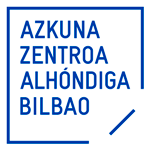
Teruel, 1980. Illustrator, creator of books and professor. Higher technical degree in plastic arts and design in illustration at the Escuela de Artes y Oficios Artediez (Madrid). Degree in Publicity and Public Relations at the Complutense University of Madrid. Explorer of white pages. For him, to illustrate is to decide, to illustrate is to tell, to illustrate is to observe, to illustrate is… to feel.
Part of his professional activity is dedicated to the development of workshops and creative laboratories linked with illustration and drawing. His illustrations have been selected in Bologna Children’s Book Fair (Italia), Illustration Biennial of Bratislava (Slovakia), Sharjah Children’s Book Fair (Arab Emirates), Ibero-American Catalogue of Illustration (Mexico), CJ Picture Book Awards (Korea), Mostra Internazionale d’Illustrazione per l’Infanzia Sàrmede (Italia) or China Shanghai International Children’s Book Fair (China).
Share:
“La fantasia è un posto dove ci piove dentro”. This is the title of one of the most beautiful “American lessons” of Italo Calvino, who begins with a verse of Dante Alighieri in Purgatory “Poi piovve dentro a l’alta fantasia”. Even though Dante claimed that his imagination rained from heaven or God and moved that part of his visual fantasy to writing, Calvino defended that we may express what we imagine with words, and that imagination leads us to see, but also to create images that originate from words.
The experience of reading images implies developing places in the mind, building stories, generating a tale, giving movement to some characters. But it also means verbalizing that imagination, shaping it, putting it in words, it is an act of telling and sharing. To an adult or a young reader. What comes first? The image or the word? Are we capable of superimposing our emotions, experiences, or ideas using illustration as a guide? This project is a search for the answers to these questions, from the creation of open images, together with creative laboratories or with the Sacro Bosque of Bomarzo as a starting point for the research.
Rome is beautiful and chaotic, it is a mixture that includes a bit of sacred animal, ruins, and open museums in the fresh air. There is something quite instinctive and primate here… the tastes, the light, the colour, the enjoyment of life. One must remain alert so that the city doesn’t devour you but also remain conscious of everything it is hiding.
The Academy is a mirror of this city, a place with history and energy that goes back to 1873 but open to new disciplines, to contemporary creation, to dialogue between artists and citizens. As a mirror you are reflected and projected in the conversations with other residents, in the processes, in the search, and in the isolation. Your image is diluted and distorted, even your own idea of yourself, of your project, about art or creation.
There is a kind of trap or illusion in the Academy. How can you create if Rome hasn’t entered in you? How to follow theoretical steps when the city opens the way? I believe that is the magic. The footprint of Rome and the Academy now form part of you, these nine months are only the beginning.
I am in Rome. I arrived at a palace and all of the sculptures were decapitated. They were only bodies. Meat made of stone. Impulse. There was no reason.
I am in Rome. I got lost in a forest of paintings. An eternal spring of tempera and pigments. There were birds. Song of lime and stucco. There was no sound.
I am in Rome. I dreamt seeing myself as a forgotten saint. I felt the wounds, the diagonal, and the cutting lines of my martyrdom. A little later I faced that image in a church. Delusions of martyrdom. I dream of awakenings.
I am in Rome. The bones of my hand break. I lost two millimetres of a finger. I think of numbers, of the 21 grams that the soul weighs and of the 2 mm I now lack, in the seriousness of the words and the lightness of hugs. Tribute to bone. Liturgy of skin.
I am in Rome. Beautiful and chaotic, I am disoriented in the streets and in myself. I drink from wolf fountains; I follow the starlings and I walk among ruins. Mysteriously, in Rome, you always arrive somewhere, even if it isn’t where you had expected. The lost steps. The live ruins.
